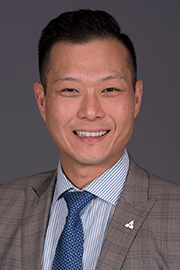- Aug/29/22 11:00:00 a.m.
The associate minister.
- Hear!
- Rabble!
- Aug/29/22 11:00:00 a.m.
Meegwetch, Speaker. Remarks in Oji-Cree.
My question is to the Premier. Northern Ontario hospitals are disproportionately impacted by health care staff shortages. In Sioux Lookout and in Red Lake, hospitals are relying on locum physicians and agency nurses to fill the staffing gaps. Speaker, this is not sustainable.
Why is the government allowing private agencies to create these gaps, when they should be working with northern hospitals to create sustainable solutions?
What is this government doing today to fix the health care staffing issues in Kiiwetinoong, not in southern Ontario?
- Hear!
- Rabble!
- Aug/29/22 11:00:00 a.m.
It is important for all of us to appreciate that there have been many plans in the works, including, of course, two exciting new announcements in Brampton and Scarborough for new opportunities for people to become doctors in Ontario and stay and train in Ontario. Along with adding 400 physician residents to support the workforce in northern and rural Ontario—we’ve been doing that work.
Clearly, when you hear from individuals like Anthony Dale of the Ontario Hospital Association that “Ontario’s hospitals are rapidly becoming the health care provider of last resort for thousands of people who actually need access to home care, long-term care and other services,” it is precisely why our government has invested a billion dollars in our most recent budget to ensure that community care happens in community, where people want it.
The issues raised by the member opposite are not new. They are not something that has happened in the last weeks and months. This is something that has historically been a challenge: to recruit and retain people in northern Ontario to practise. Frankly, I would respectfully remind the member that it was a Progressive Conservative government that actually started the last most recent medical school in northern Ontario.
- Hear!
- Rabble!
- Aug/29/22 11:10:00 a.m.
Because it is the law in the province of Ontario, and became the law through the Fixing Long-Term Care Act. Nobody can be moved into a home that does not have the resources to handle the person that is being transferred in. That is the whole point of this bill. I’m not sure how the member could actually get up in her place and ask this question, and then say that she’s not in support of the bill that we are bringing forward.
But I’ll go even further: I challenge the member to lay on the table what the Liberals did with respect to long-term care. Did they get us to four hours? No. Did they build new homes? No. Did they increase the food budget? No. When it comes to health care, they failed not only seniors in this province, they failed so many people in the province of Ontario. We’re reversing that. We are making historic investments because we know how important health care is to ensuring a strong, stable government that can meet the needs of Ontarians for decades to come, for the economy and education. We’re getting it done because we know how—
- Hear!
- Rabble!
- Aug/29/22 11:10:00 a.m.
My question is to the Premier. This government’s failure to deal with the health care crisis is not just affecting hospitals; it’s hurting patients who rely on home care as well.
This month, Robin Floyd’s son, who is vision-impaired and has a heart condition, went for surgery at London Health Sciences Centre. After being discharged with a drainage tube, he was told that a home care nurse would come the next day to check the incision and drain the tube. After countless phone calls and endless frustration, Robin finally managed to get a home care appointment nine days after her son had his surgery.
Does this government believe that that is an appropriate standard of care?
Kim’s story is not new and not unique. The VON told me they can’t meet 50% of the referrals they get. Why is this government completely ignoring the long-standing problems in home and community care?
- Hear!
- Rabble!
- Aug/29/22 11:10:00 a.m.
The economic impacts of the COVID-19 pandemic are making it challenging for businesses in Ontario to find the skilled women and men they need to grow and prosper. Small business owners continue to feel the pressure of the labour shortage, and the skilled and semi-skilled labour shortage remains one of the main factors limiting business growth. We know that small businesses are a significant contributor to Ontario’s economy, so it is essential to help them thrive and feel confident about the future.
Speaker, can the Minister of Labour, Immigration, Training and Skills Development share with the House what assistance our government is providing workers to train them with the skills they need to help restart our economy?
- Hear!
- Rabble!
- Aug/29/22 11:10:00 a.m.
Thank you, Mr. Speaker, and to the minister for his view of history. I’ll add to that history that the momentous decrease in hospital beds—from which we are still recovering—occurred between 1990 and 1999, under two other previous governments.
This government’s Bill 7 will send seniors to long-term-care facilities that are not amongst the choices that are best for them. Furthermore, these seniors could be going into for-profit long-term-care facilities which are suffering from severe staffing challenges, as referred to in their recent quarterly reporting increases.
Will the Minister of Long-Term Care tell us how he can assure patients and their families that seniors sent to their non-preferred homes—in particular, for-profit ones—will receive the care they need when these facilities continue to deal with pervasive staffing challenges?
- Hear!
- Rabble!
- Aug/29/22 11:10:00 a.m.
Well, clearly our investment of a billion dollars in our most recent budget speaks to exactly why we want to improve home care in homes, where people want to be able to recover and recuperate.
In our last budget, a billion dollars over the next three years—but what does that actually give you? In your community, in the case of Robin’s son, the funding will support an estimated 28,000 post-acute surgical patients and an estimated 21,000 patients with complex health conditions every year by providing 739,000 nursing visits. That’s 739,000 nursing visits that never happened under the previous governments.
We are making the investments because we understand it’s not just about hospitals. It’s not just about primary care and long-term care. It’s also about community care, because there are many thousands of people who want to do that recovery in their own home with appropriate supports. We’re providing those appropriate supports.
One very specific example: I’ve talked about complex health conditions, but over two million hours of personal support services will now be provided in Ontario in communities like yours to make sure that your constituents, your residents have that quality of life in their own home with their families.
- Hear!
- Rabble!
- Aug/29/22 11:10:00 a.m.
The supplementary question.
- Hear!
- Rabble!
- Aug/29/22 11:10:00 a.m.
The pandemic pushed Ontario’s health care system to its limits. After years of chronic staffing shortages, budget cuts and neglect from the previous Liberal government, deep flaws within the health care network were exposed. We must alleviate the strain on the system and ensure that we build a more robust, more resilient health care network. That means having doctors to meet future health care needs of Ontarians.
Speaker, can the Minister of Colleges and Universities explain what the government is doing to train the health care professionals needed to care for the people of Ontario?
Can the minister share with us what the government is doing to increase the number of undergraduate and postgraduate medical education positions across the province?
- Hear!
- Rabble!
- Aug/29/22 11:10:00 a.m.
Thank you to the member from Oakville North–Burlington for that important question. We need to increase health human resources, and that starts with post-secondary education. Our government is getting it done by taking action to increase health human resources across Ontario through our historic expansion of health care post-secondary education.
Earlier this year, we established the Northern Ontario School of Medicine as the first stand-alone medical school in northern Ontario. This gives students the flexibility to study closer to home and serve remote and underserved communities across Ontario.
We are also building the first new medical school in the GTA since the University of Toronto built their medical school back in 1843. We are the government that is building the new Toronto Metropolitan University medical school in Brampton. We are also creating the new University of Toronto Scarborough Academy of Medicine and Integrated Health in Scarborough, and expanding the Queen’s Lakeridge Health campus in Durham.
Our government knows that training more doctors will ensure that Ontarians have access to doctors.
We need to train more health care professionals across Ontario. Not only are we increasing the number of medical seats that will serve both urban and rural communities across Ontario, but we are also enhancing existing medical and health care programs. Our government is adding 160 undergraduate and 295 postgraduate positions to six medical schools across Ontario, but we are also enhancing.
Earlier this year, we also announced our learn-and-stay program, which, over the next four years, can help 3,000 nurse graduates receive financial support to cover the cost of tuition in exchange for two years’ service in an underserved community.
Speaker, we understand that in order to keep Ontario safe and open, we need to ensure that we have a high-quality, resilient health care system, and that starts with a high-quality postsecondary education system across the province. That is why we are expanding opportunities for students in every part of Ontario to join the health care profession.
- Hear!
- Rabble!
- Aug/29/22 11:20:00 a.m.
The critical mineral deposits in the Ring of Fire represent an unprecedented opportunity for economic development for First Nations partners and all Ontarians. The Ontario government is partnering with First Nations communities to build road projects that will unlock development in the Ring of Fire and lead to more critical mineral mines.
The Anishinabek Nation Grand Council chief recently said that the Ontario government will need to consult with First Nations the “right way” and that it can be done in the right way, and it can be done faster. What is the Minister of Mines doing to ensure that First Nations communities are consulted effectively, and as the Grand Chief said, expediting the process faster?
The Liberals promised action on the Ring of Fire, and time and time again, they didn’t deliver. They announced funding for the Ring of Fire for three budgets in a row, but this was just window dressing. They then removed any reference to the Ring of Fire whatsoever.
Speaker, I agree with the statement from the Minister of Mines that “at the end of the day, we can do better than taking 15 years to get a mine built.” What is the government doing to get this project done?
- Hear!
- Rabble!
- Aug/29/22 11:20:00 a.m.
In 2018, the Premier promised to complete the four-laning of Highway 69. At the time, there were 68 kilometres left to be tendered. And four years later, after many, many broken promises, not one kilometre has been tendered.
Meanwhile, preventable accidents continue. People continue to be injured. People continue to be killed. I’ll tell you, just this month, Speaker, there were head-on collisions on August 2, August 8 and August 15. That’s three collisions in 15 days—multiple injuries and one preventable death in 15 days.
My question, Speaker, is, when will the Premier finally keep his promise to complete the four-laning of Highway 69?
If the Premier is not going to keep his promise to finish the last 68 kilometres of Highway 69, will he come to my riding to explain to those families who have been affected by this why it’s not a priority for him?
- Hear!
- Rabble!
- Aug/29/22 11:20:00 a.m.
The supplementary question?
- Hear!
- Rabble!
- Aug/29/22 11:20:00 a.m.
I’d like to thank the member for Mississauga–Erin Mills for that question, but most importantly for all the work that he did in our first Working for Workers legislation to recognize international credentials, Mr. Speaker.
Our government, under the leadership of Premier Ford, is really on a mission to make our families and all of our communities stronger. One of the many ways we’re achieving this is through our brand new program Better Jobs Ontario. Mr. Speaker, we’re offering training to who wants to train for in-demand jobs in any community across the province. This includes those on social assistance, those who are self-employed, gig workers, youth and newcomers. Better Jobs Ontario offers up to $28,000 for tuition costs and up to $500 a week for basic living costs like rent and mortgages.
Mr. Speaker, we’re all in for Ontario’s workers, and we’re just getting started.
We launched our flexible Skills Development Fund, which supports innovative programs that help workers learn the skills that local employers want.
And over the past number of years, it’s no surprise that training has really taken off. We’ve launched almost 400 training projects across the province and supported nearly 400,000 workers with the skills they need for better jobs and bigger paycheques.
Mr. Speaker, with game-changing investments like these, we’re helping workers, businesses and everyone in their communities succeed.
- Hear!
- Rabble!
- Aug/29/22 11:20:00 a.m.
Thank you, Minister. The future of our economic recovery and the success of our businesses rely on Ontario becoming a skilled trades and training leader. Our province badly needs carpenters, electricians, plumbers and a full array of skilled trades and blue-collar workers who will help us overcome our housing shortage, reconstruct our infrastructure and help restore our economy.
Our workers are the best in the world, and they deserve to have a government that values the contributions they make day in and day out.
Mr. Speaker, can the minister tell us what our government is doing to help level up skilled trades for our province’s workers, which will help return our economy and businesses to their previous position of strength?
- Hear!
- Rabble!
- Aug/29/22 11:20:00 a.m.
Any tragedy on the roads is of deep concern to this government. Our hearts go out to the families and friends that are affected by those incidents on Highway 69.
Speaker, when it comes to this important highway—widening—that project is a priority for our government. We said that from the beginning in 2018, despite the lack of movement on that by the previous Liberals.
I want to remind the member opposite that 70 kilometres are already complete on Highway 69, and MTO is working diligently to get the approvals needed to complete the remaining 68 kilometres of the corridor.
In December, Minister Mulroney announced the opening of a 14-kilometre extended stretch between Highway 69 in the French River area. Speaker, work continues to complete a 14-kilometre four-laning project south of Alban, and this is expected to be done by the end of the year. We’re continuing to work diligently to build the rest of the highway and negotiating with the First Nations, an important piece of getting this process done, and the environmental assessments that are necessary. But we’re going to finish the job.
But also curious from the members opposite is the tone when it comes to building highways. On the one hand, they say no to Highway 413. But when it comes to Highway 69, Highway 7 in Waterloo and Highway 7 in Guelph, they’re all for the widening of highways, they’re all for the building of new highways. It’s almost like they acknowledge that we need to expand the transportation network across a growing province, a world-class province like the one we have here in Ontario.
We’re not only going to build that Highway 69, we’re going to make sure we build Highway 413 and prepare the future generations of Ontarians to come.
- Hear!
- Rabble!
- Aug/29/22 11:20:00 a.m.
Thank you for the question from the member for Chatham-Kent–Leamington.
By working with First Nations, we are ensuring that consultation is done the right way. Webequie and Marten Falls First Nations are leading environmental assessments for road projects and are integrating Indigenous principles with the provincial process. Just last week, the Webequie Supply Road Project team held another open house session for Indigenous community members to learn about their project.
Our government stands shoulder to shoulder to shoulder with the First Nations partners. During my recent visit to Webequie First Nation, I offered our government’s full support to assist with consultation. When we consult the right way, we get things done, and we will make real progress on economic reconciliation.
Our message is very simple: There is no green economy without mining. We need the critical minerals in the Ring of Fire to meet our climate goals. That’s why our government is getting it done by working with the First Nations to build the “corridor of prosperity” that leads to the Ring of Fire.
Our government committed almost $1 billion to support road development, broadband infrastructure and other community projects. Environmental assessments for two of the road projects are already under way. We can accomplish anything when we build strong partnerships with the First Nations, and that is exactly what our government is doing.
- Hear!
- Rabble!
- Aug/29/22 11:30:00 a.m.
You can see how he made the connection from cigars to convenience.
- Hear!
- Rabble!
- Aug/29/22 11:30:00 a.m.
My question is for the Premier. The Income Security Advocacy Centre along with over 230 social service providers and community organizations have called on you to double both OW and ODSP rates and to index these rates to inflation. My office of Hamilton Mountain has received over 3,200 emails in just a very short time in support of doubling these rates.
People on social assistance are relying on food banks, shelters, improper medications, and, quite frankly, are in dire straits, where homelessness is their only option. Renovictions and rent increases are forcing people on social assistance to spend over 60% of their income on substandard roofs over their head. Seventy-three per cent of food bank users are on social assistance, and yet food insecurity is falling on the priority list due to substandard housing.
Will the Premier and his minister listen to ISAC and the over 230 providers, increase the rates—double the rates—and include people on Ontario Works?
- Hear!
- Rabble!
















